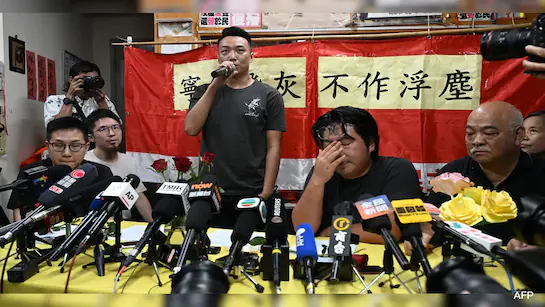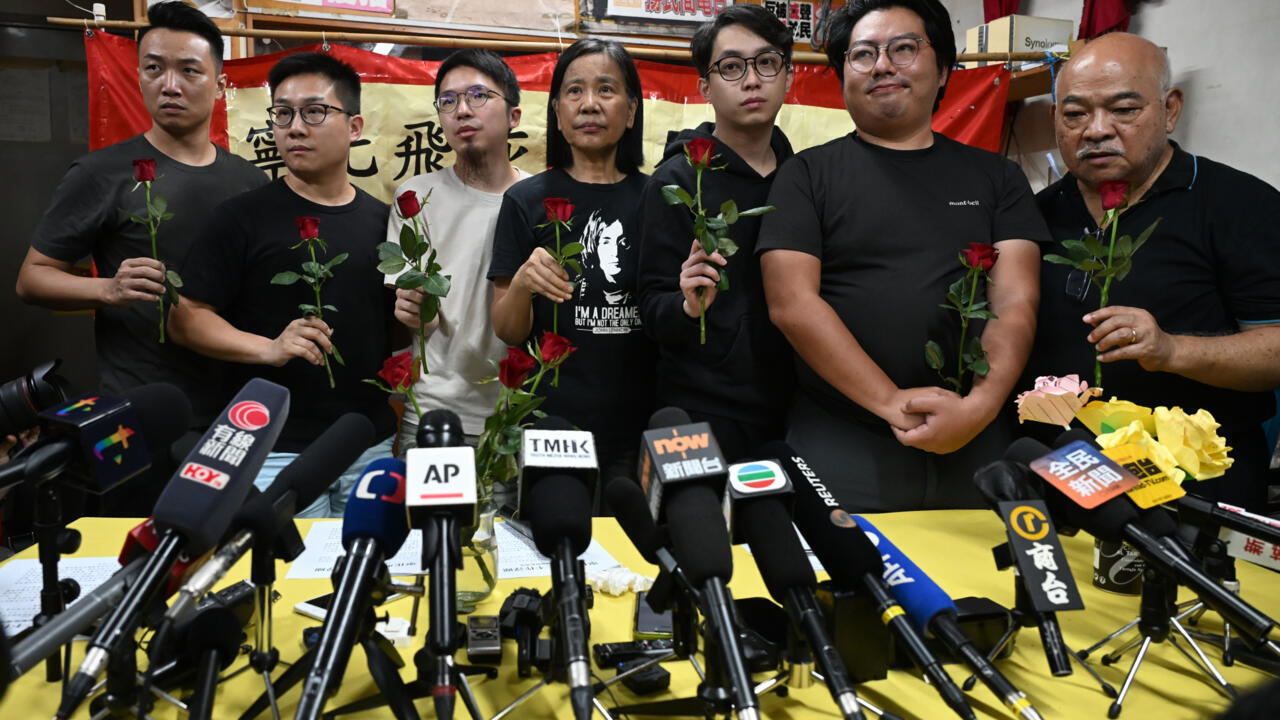One of Hong Kong’s last remaining opposition parties, the League of Social Democrats (LSD), officially announced its disbandment on Sunday, citing “immense political pressure” amidst Beijing’s intensifying crackdown on dissent in the semi-autonomous city.
Founded in 2006, the LSD was known for its advocacy of democratisation and grassroots issues, both within Hong Kong’s legislature and through street protests. Its lawmakers were recognised for their distinctive and often theatrical legislative actions, including symbolic protests with objects like bananas and fish sandwiches.
The LSD is the latest in a series of opposition parties to cease operations since Beijing imposed a sweeping national security law in 2020, which effectively ended the widespread democracy protests that had previously paralysed the financial hub.
In a statement, the LSD confirmed its “difficult decision to disband” due to “immense political pressure” and concerns for its members.
Party chair Chan Po-ying stated the decision was unanimous, as the group had “no other choice,” though she declined to elaborate on whether the pressure originated from Beijing’s intermediaries.
At its peak in 2008, the LSD held only three legislative seats but was instrumental in bringing a more radical pro-democracy agenda into the mainstream.
Following the national security law’s implementation, Hong Kong’s political opposition has largely been dismantled, with many democracy campaigners either jailed or forced to leave the city.

Other parties, such as the Civic Party, closed in 2023, and the Democratic Party began winding down in February.
Regina Ip, convenor of the Hong Kong government’s cabinet, welcomed the disbandment of these opposition parties, asserting that they had “done great damage to Hong Kong and the proper functioning of the Legislative Council.”
Authorities have since overhauled the electoral system to ensure that only individuals loyal to Beijing can hold public office.
Chan Po-ying expressed no “false hope” for future liberalisation, stating, “I don’t think Hong Kong will go forward to the democratic system shortly.”
The party also reported operational difficulties, including the closure of its bank accounts in 2023.
Six LSD members have been imprisoned over the past five years, including Chan’s husband and co-founder, “Long Hair” Leung Kwok-hung, who remains jailed after being convicted of subversion in Hong Kong’s largest national security trial last year.
Another LSD member jailed in the same case, Jimmy Sham, was released last month. At the press conference, Sham highlighted LSD as Hong Kong’s first political party to integrate LGBTQ equality into its core platform.
He expressed a sincere hope that “in the future, there will still be voices in society that speak out for the marginalised.”
Recently, the LSD’s public activities have been largely confined to a Sunday street booth where activists distributed flyers under police surveillance.
Vice-Chairperson Dickson Chau recounted small gestures of support from passersby, such as nods or offering beverages.
However, operating in the current political climate has taken a personal toll. Chau admitted to constant worry about being arrested or having his home searched and about navigating “sensitive dates.”
Chan warned of a “domino effect,” predicting that the LSD would not be the last group to fold.
She urged the public “on the one hand to survive, and on the other hand to try to exercise our rights as citizens.”


 Trending
Trending 